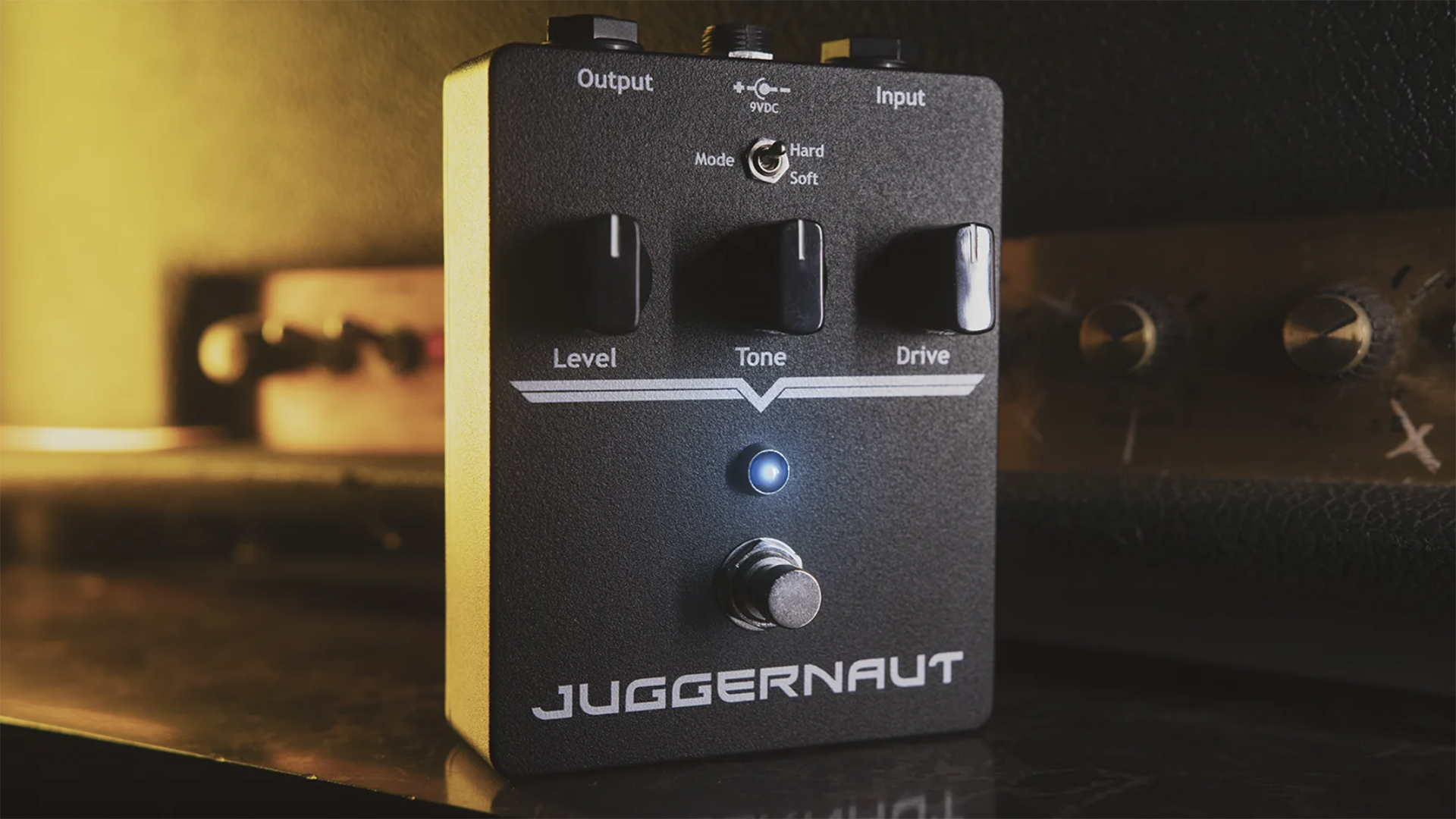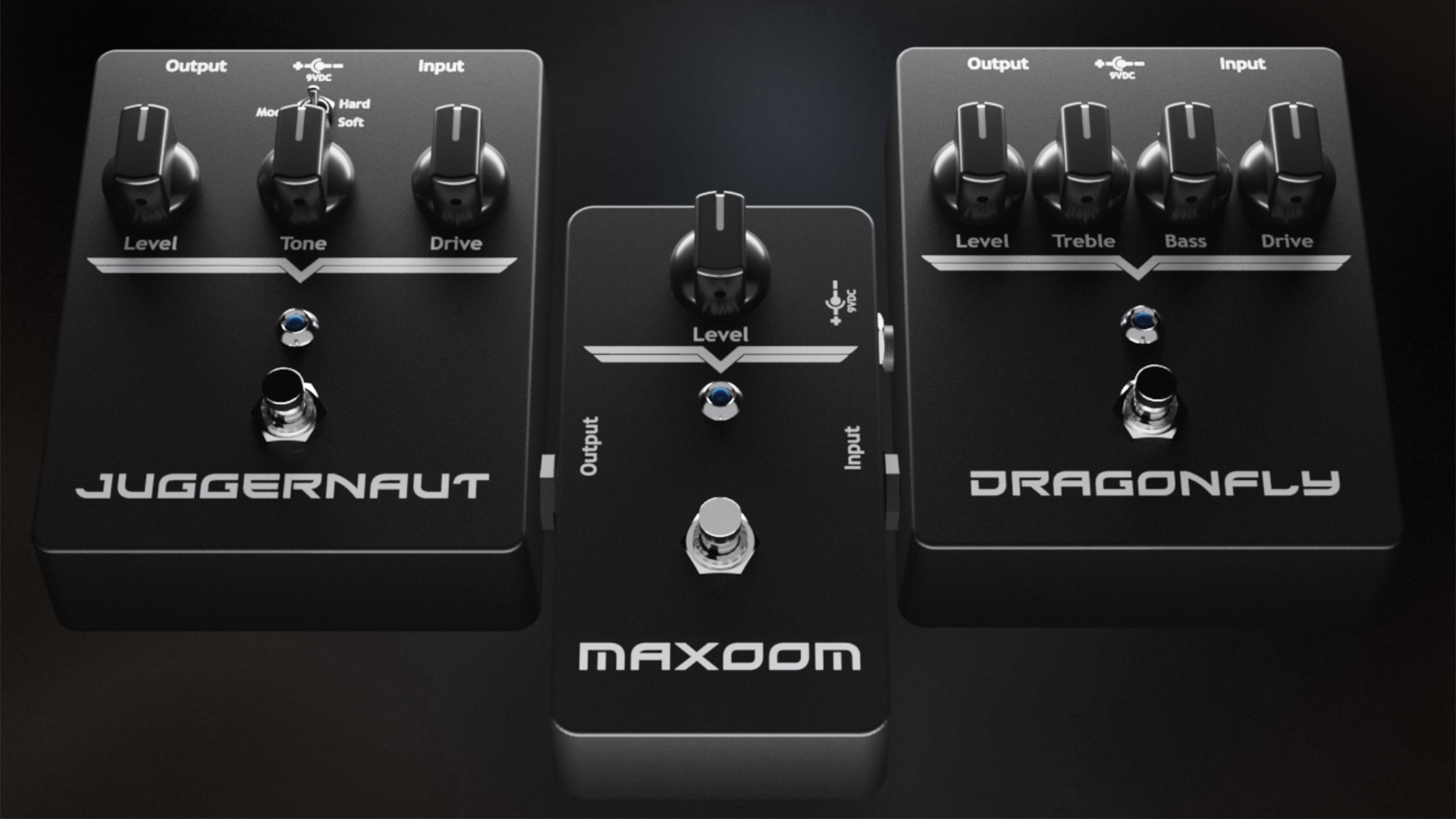“Achieve incandescent levels of distortion”: Mahogany Rush guitar legend Frank Marino has now launched his own pedal company – and is building each unit by hand
The guitarist has personally recreated the custom-made pedals he’s used in his own music across the past 40 years

Last March we reported that Mahogany Rush guitar legend Frank Marino had plans to put together his own line of self-assembled boutique guitar pedals. Now, a year on, the first three units are available to order.
The current range includes the Dragonfly overdrive, Juggernaut fuzz and Maxoom clean boost. All of the pedals are named after songs penned by Marino and based on his own custom builds he’s used onstage and in the studio across his 40-year career.
They have all been hand-assembled by Marino, with the help of Ryan Szawlowski – the son of Marino’s long-running studio engineer Billy Szawlowski.
The Juggernaut is described as an “intense, searing” fuzz pedal. While it can reportedly “achieve incandescent levels of distortion”, it also offers a Soft mode (engaged via a mini toggle switch), which offers a less intense take on the pedal’s distortion tones.
The Dragonfly Overdrive offers a two-band EQ, plus level and drive controls. Marino doesn’t reveal any detail about the circuitry or inspiration but says it “delivers classic overdrive tones that are both aggressive and dynamic.”
Finally, Maxoom is a clean boost offering a sizeable +20dB of level boost. It is designed to push an accompanying amp to the point of breakup, offering “a natural form of saturation [and] a touch of gritty warmth and improving overall sound quality”. Marino also says it's equally comfortable at lower settings in smoother jazz/blues tone territory.
“From clean, expressive boosts to punchy overdrives, each pedal embodies the company's commitment to excellence,” reads the Marino Audio statement.
All the latest guitar news, interviews, lessons, reviews, deals and more, direct to your inbox!
“Discover the transformative power of these carefully crafted pedals that will allow you to create your own unique soundscape.”
All of the pedals will also be signed by Marino. So what price do you charge for a pedal handmade by a rock-star-guitar-genius and based on his own custom designs?
Well each of the above is priced at $499.99, or you shave $100 off the total by ordering the ‘power trio’ for $1,399.
Obviously, that’s getting towards vintage pedal price territory. However, while we’ve seen plenty of artists launching their own pedal lines, a guitar hero hand-recreating their actual units is an entirely new level of boutique build – and therefore these seem pretty reasonable, given that pedigree.

Back in 2021, Frank Marino announced his retirement from touring – bringing an end to a career that spanned decades and, as Guitar World discussed with Marino in 2015, won the admiration of players including Steve Vai, Joe Bonamassa and Zakk Wylde.
To find out more about the Juggernaut, Dragonfly and Maxoom and hear more demos of each pedal, head to Frank Marino Audio.

Matt is Deputy Editor for GuitarWorld.com. Before that he spent 10 years as a freelance music journalist, interviewing artists for the likes of Total Guitar, Guitarist, Guitar World, MusicRadar, NME.com, DJ Mag and Electronic Sound. In 2020, he launched CreativeMoney.co.uk, which aims to share the ideas that make creative lifestyles more sustainable. He plays guitar, but should not be allowed near your delay pedals.



